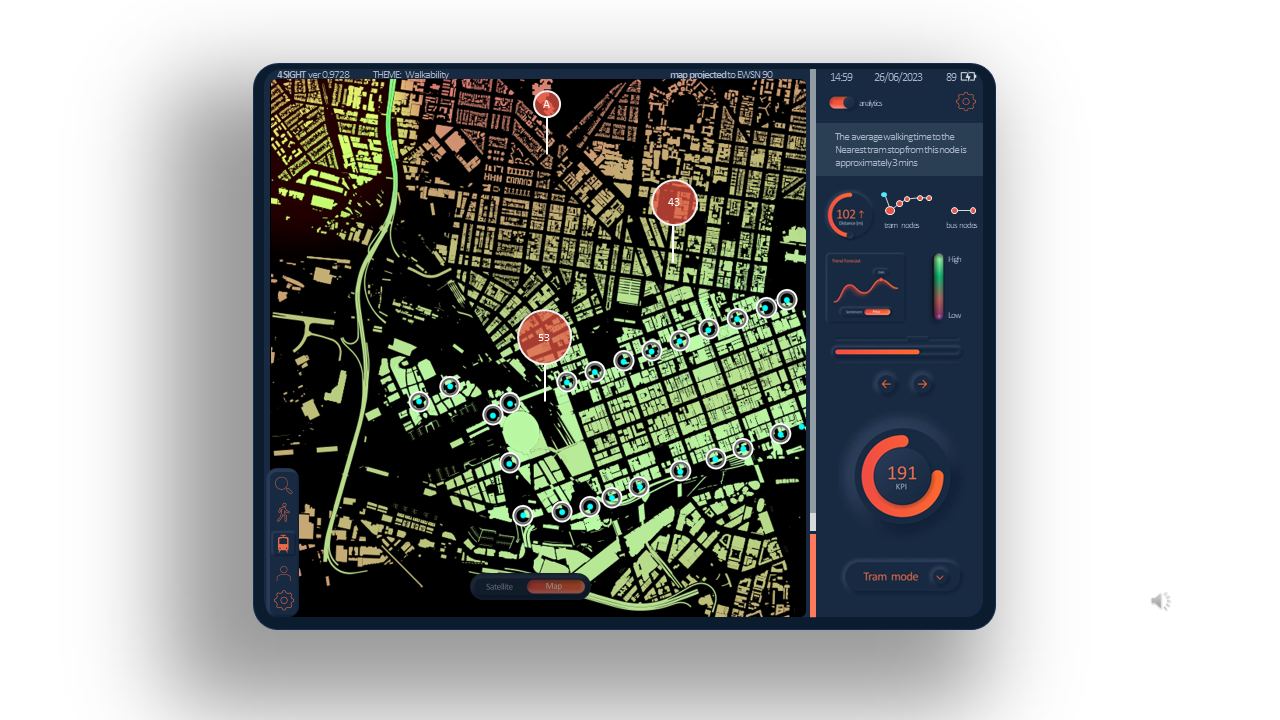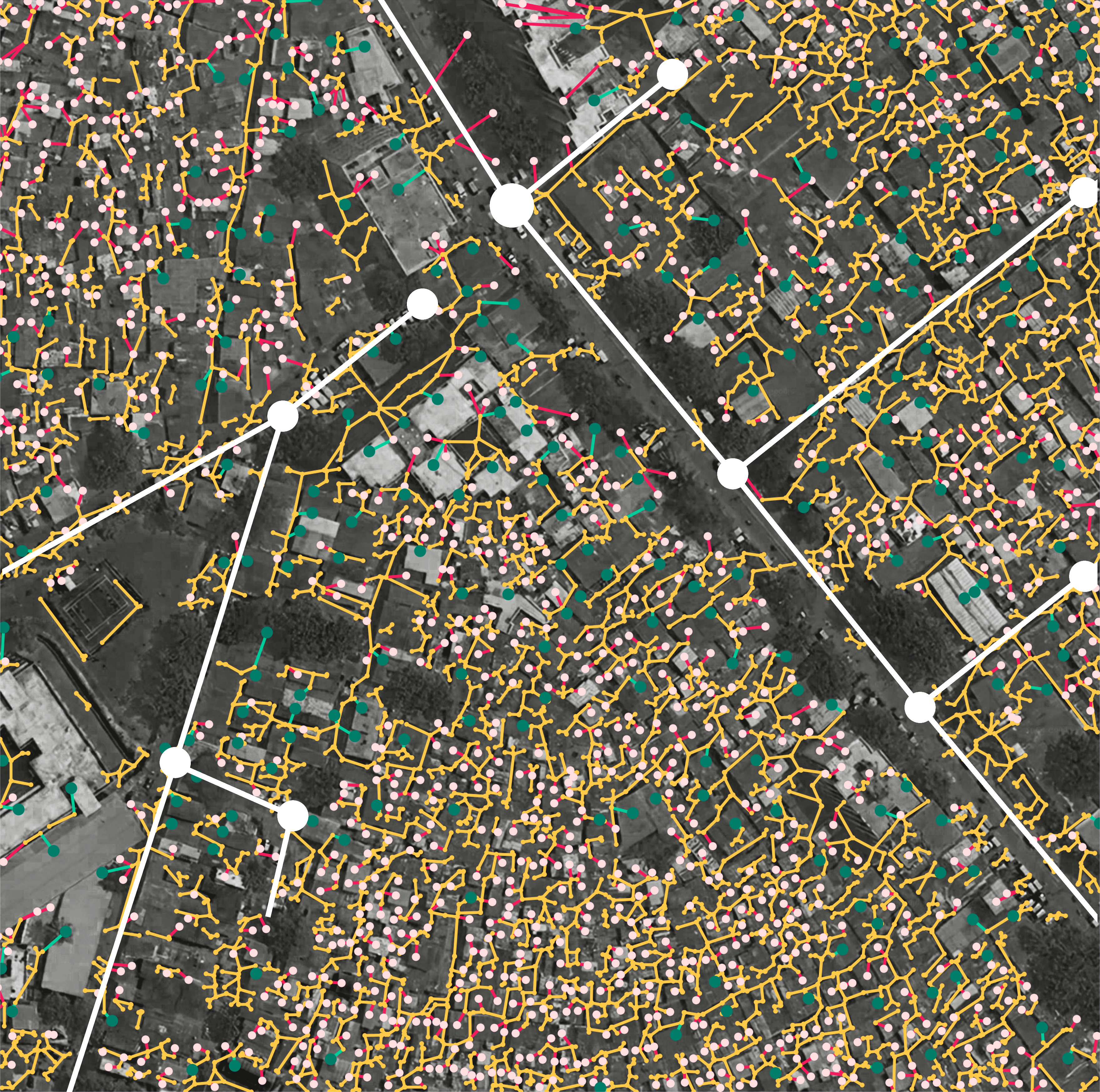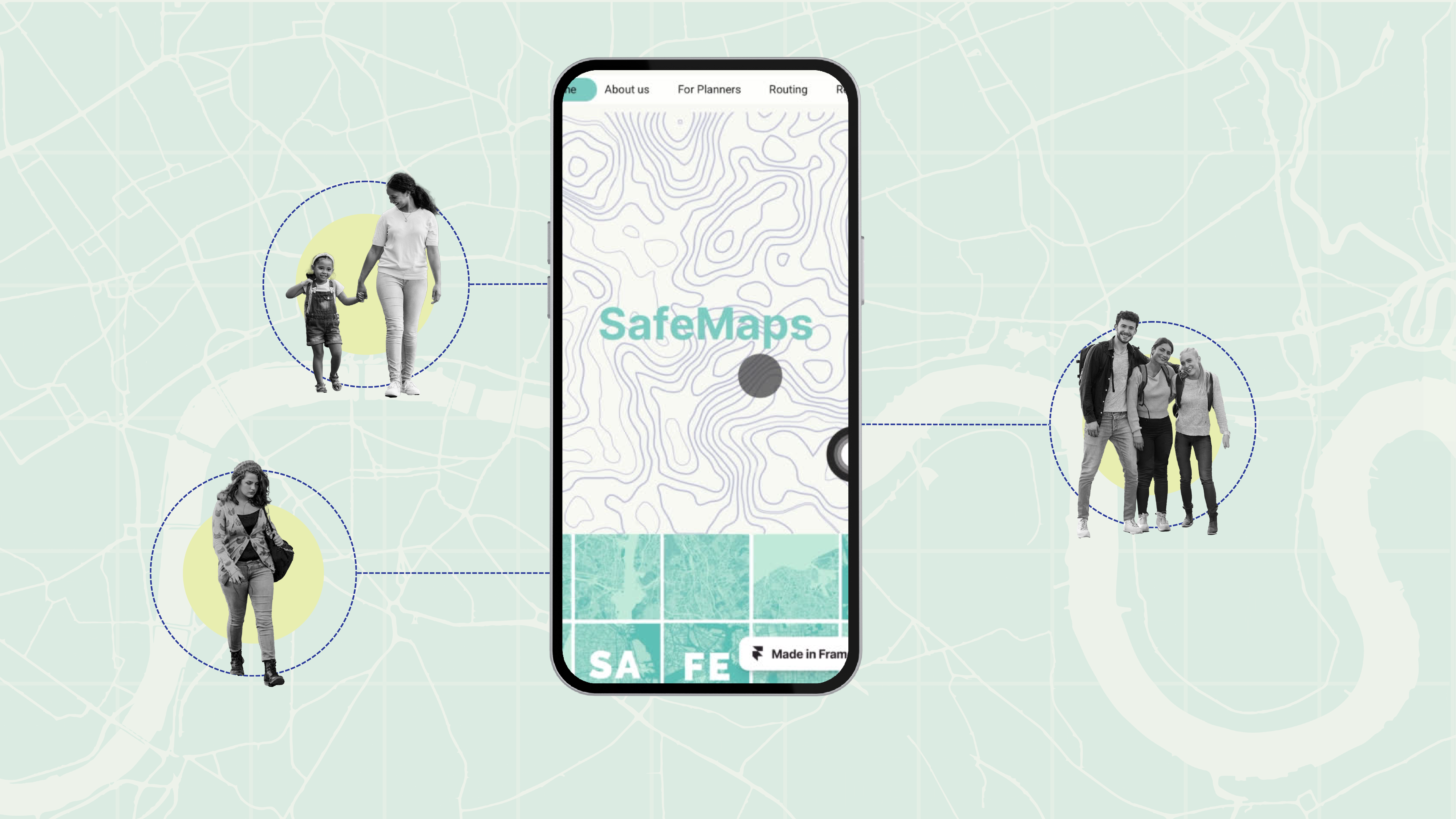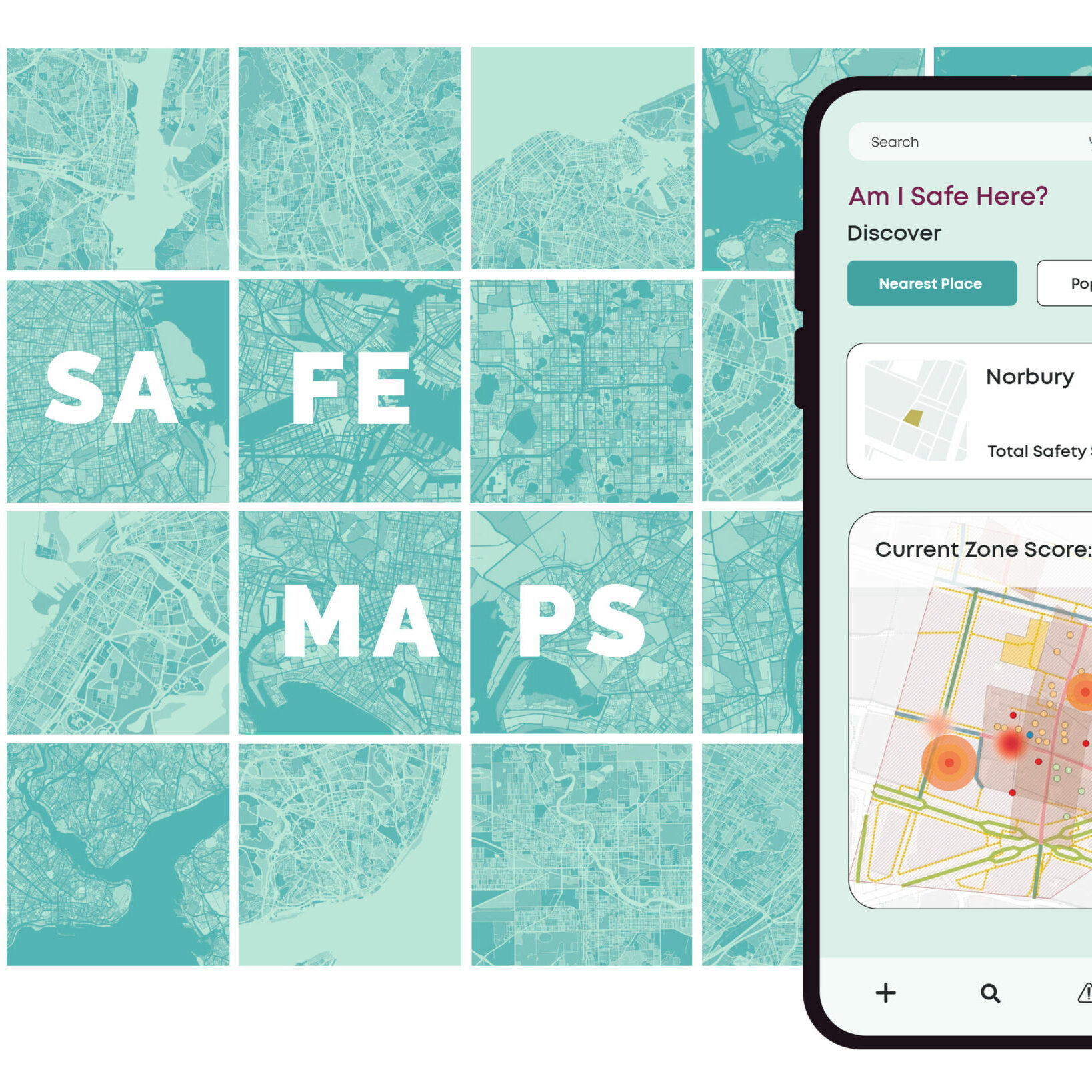
Credits: 4sight, students: Georgios Bekakos, Ray Harli and Lora Fahmy, faculty: Angelos Chronis, 2023
Traditionally a sector lagging in the adoption of new technology, architecture is being challenged in the era of artificial intelligence. The imminent convergence of design and technology are not only shaping the way we interact with the physical space, but are also on the verge of redefining the very essence of our built environment. It is clear that AI will become part of the standard toolkit of the AEC professional in the upcoming years and, as architects, we are perfectly situated in time and expertise to drive the conception and delivery of these AI enabled tools affording performance and efficiency in Architecture.
This studio seeks to provide a systematic understanding of AI technologies and their potential application in architecture, exploring the nexus between human creativity and computational intelligence. In an age where data reigns supreme, we delve into the realm of data-driven design processes, embracing open data repositories and open code practices.
The research line develops within three main relevant frameworks:
- Data Driven Form
- Embedded performance
- Integrated Interfaces
The studio work will critically provide AI enabled responses to problems found in the process and output of architecture, essentially the conception and materialisation of man-made space. We will approach the work from a pragmatic understanding of real and immediate problems, and deliver solutions that integrate with current workflows and platforms. This requires a sequenced approach which we will follow throughout the term:
- Ideation and problem solution statement
- Data sourcing and data preprocessing
- AI model selection, refinement and training
- AI model delivery and interface
- Workflow integration

Credits: Latent Studio, student: Alberto Carro Novo, advisor: Oana Taut
Learning Objectives
The studio aims to employ the students with fundamental conceptual and practical skills for developing data-driven AI methodologies for urban planning problems. Specifically, the learning objectives of the studio are:
- Fundamentals of AI applied to the built environment
- Data collection, engineering and dissemination
- Development of AI methodologies
- Deployment and interaction with of AI models
- Collective dissemination
- Visualisation and analysis of data-driven planning
- Project planning for AI driven projects














